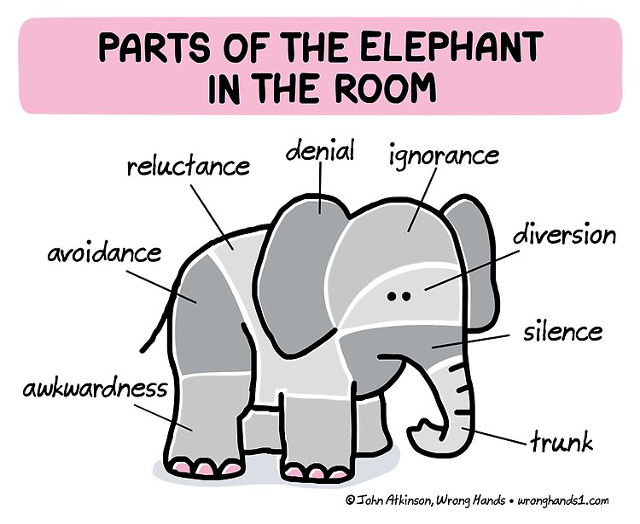You probably know why you’re reading this.

You have memories that you’re afraid to recall. They’re associated with something you’d rather forget, and even the thought of remembering can threaten to overwhelm you.
You’re not alone! People are very good at wishful thinking, and having ‚blind spots‘ is normal. There’s even a name for it: The Streetlight Effect. For you, suppressing a painful past may provide a way to survive – a way to cope with the unthinkable.

Trauma survivors occasionally go to extraordinary lengths to resist facing the truth. Repressed memories and dissociation – feeling disconnected from your body, or feeling that the world around you is unreal – make it challenging to acknowledge or share problems.
If you erase awareness, there is a cost. It takes enormous energy to bury feelings. But this also buries all feelings, bad as well as good. You become emotionally numb, and ultimately lose trust in yourself, and in others. The effects still reverberate throughout your life: in your self-image, relationships, and work. Sometimes the past and future become too intolerable to contemplate, so that you can live only in the present, existing from one moment to the next.
Memory is painful, but amnesia is paralyzing.
Losing your sense of ‚self‘ makes it impossible to protect yourself from danger. This sense of disconnection may prompt you to take ever-escalating risks in order to feel something, anything… „No risk, no fun.“
Perhaps your friends or family have confronted you – the ‚changed‘ you. Do you ever find yourself saying these things?
„I’m fine, it didn’t really affect me“
„I’m strong, I can deal with it“
„It’s all in the past; I’ve moved on“
„It happens to other people too, I’m nothing special“
„I prefer not to think about it“
„It didn’t happen“
This is an indication of an ‚elephant in the room‘ – something big and powerful that you must nevertheless ignore, and work your way around.

The longer you keep a secret, the more it becomes a part of you. You feel that you’re inside something that others are outside of. It isolates you, but it also isolates the people you love most.
It takes enormous courage to allow yourself to remember.
Suppressing deep-seated sensations of terror or shame may give you an illusion of control, but in reality this kind of silence causes conflict within you. Perhaps you’re afraid that naming what happened to you will make it worse. But acknowledging the past gives you a different kind of control over it. It is the beginning of a journey in which you can remap the world.
Rather than simply reliving painful memories (which can become overwhelming), you must properly ‚process‘ trauma: gradually awaken your awareness of the event, with all of its bodily sensations and emotions. This triggers a reorganization of the nervous system, during which new patterns of sensations and memories are formed. It is a physical process – literally a remapping of the world within you. By integrating the bad memories in this way, they are no longer traumatic.
There are many types of therapy that can help, and a growing number of self-help work books. But most important is that you find someone who can understand and engage with you (because they’ll see the ‚blind spots‘ that you can’t recognize by yourself). Usually this will be a psychotherapist, but it can also be a knowledgeable and compassionate friend. (Did you know that even therapists are required to undergo therapy as part of their training? They gain awareness of uncomfortable truths, and learn how to accept feedback, so that they too can understand what it’s like to be a patient.)
What type of therapy? EMDR trauma therapy has had outstanding results, often in just a few sessions. Sometimes there are no words to express what’s inside you, so other therapies engage your body through movement, dance, yoga, or even martial arts, or encourage you to express yourself through art or play-acting. You have to find what works best for you.
We’ve included a list of recommended books, to help you understand what you’re going through, and – most importantly – to let you know that you’re not alone. There is support, and you deserve to be heard. Arielle Schwartz wrote it beautifully: „You are not broken, in need of fixing. Rather, you are deeply hurt, in need of care. With sufficient support, you will be able to release your defensive self-protection to reveal your innate worth, wisdom, and creativity — your greatness.“
The only way out is through. You can do it!
Recommended reading
Burrowes, Nina. The courage to be me. https://www.consentcollective.com/courage
Fisher, Janina. Transforming The Living Legacy of Trauma: A Workbook for Survivors and Therapists. PESI Publishing & Media, 2021.
Lebow, Hilary I. Trauma Denial: How to Recognize It and Why It Matters. https:// psychcentral.com/blog/denial-of-trauma-signs
Schwartz, Arielle. The Complex PTSD Workbook: A Mind-Body Approach to Regaining Emotional Control and Becoming Whole. Sheldon Press, 2020.
van der Kolk, Bessel. The Body Keeps the Score: Brain, Mind, and Body in the Healing of Trauma. Penguin Publishing Group, 2015.
Winfrey, Oprah. What Happened to You?: Conversations on Trauma, Resilience, and Healing. Bluebird, 2021.
Picture credits
1 Linklater, Richard. Before Sunset (2004).
2 Author unknown.
3 Atkinson, John. Parts of the Elephant in the Room. https://wronghands1.com/2018/01/12/parts-of-the-elephant-in-the-room/




